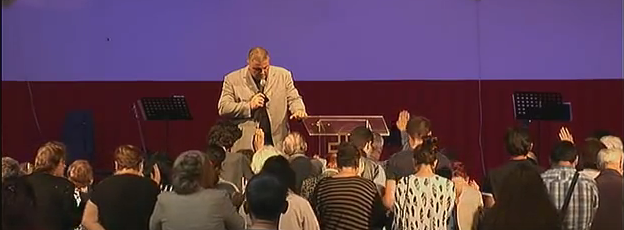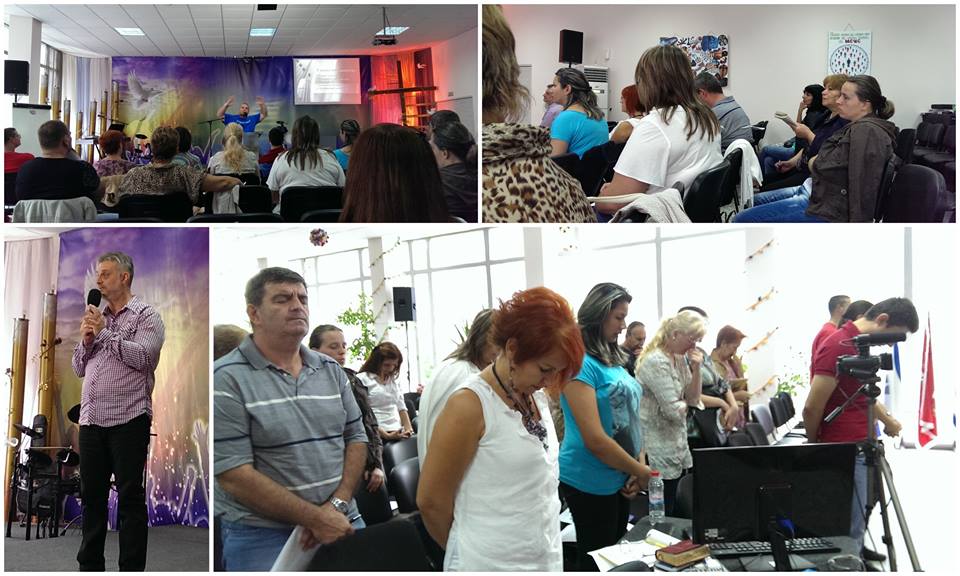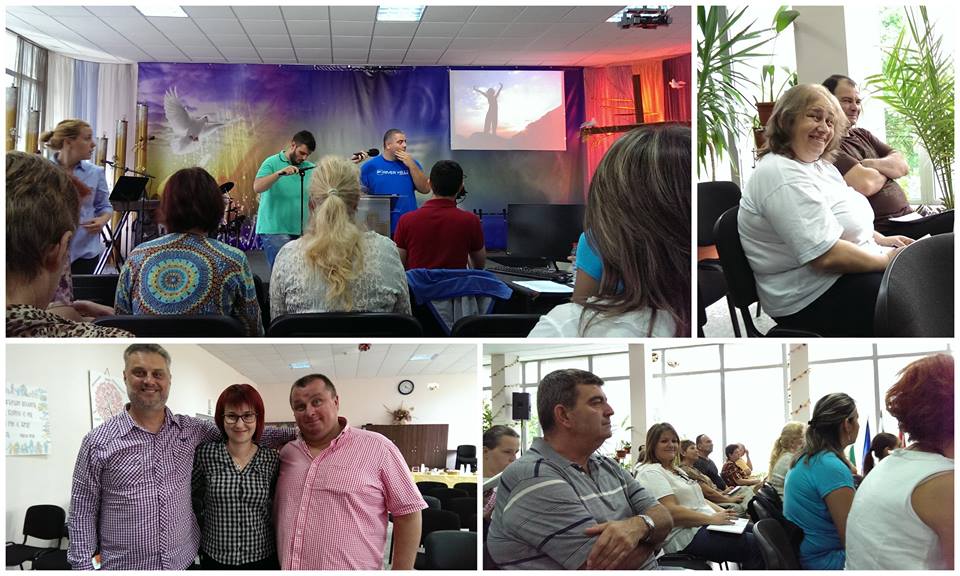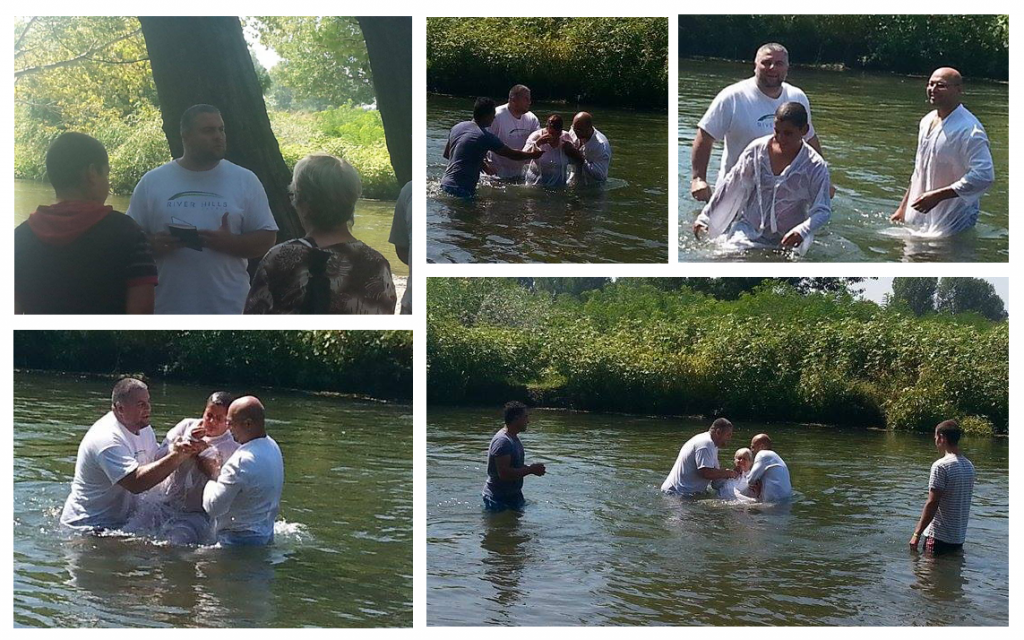Toward a Pentecostal Solution to the Refugee Crises in the European Union
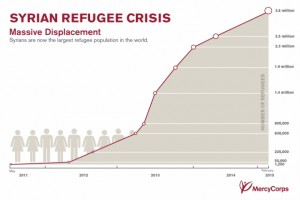 Rev. Dony K. Donev, M.Div., D.Min.
Rev. Dony K. Donev, M.Div., D.Min.
We saw them everywhere during our ministry trips through Europe. Long columns of dark bearded men, covered women and malnourished, underdressed little children. They fill the refuge villages in Bulgaria near the Turkish border. Many of them were forced to travel in long trains from Austria to Hungary, Germany and all the way to the large Muslim ghettoes of Amsterdam and East Berlin. And even at the Dover side of the English Channel, where tens of miles long truck columns were parked directly on the interstate waiting for the refugees to pass with the ferryboats.
Every minister/missionary should at least wonder about a solution to this largest migration wave of the century. What is the proper human, Biblical approach toward these people regardless if they are persecuted Christians, migrating terrorists or just refugees without a country? What would be the Pentecostal (in the Spirit of Pentecost) response to their fate?
Several outspoken Pentecostal denominations have already raised awareness to the issue with a call for a “Christian assimilation.” Frankly, “assimilation” as an anthropological term is outdated even in the most assimilative cultures in the world. In the United States, once a melting pot of ethnos and cultures, modern day emigration takes terms in creating subcultures. In such cultural setting, assimilation is fairly hard to achieve and quite imperialistic as an approach. It is also not a religious term – the proper faith language being “proselytizing.” Even the Bible states that at the end “every tongue shall confess” picturing a multitude of ethnoses, not merely one assimilated culture. With all this, a call for cultural assimilation on part of Christianity borders a call for crusades, even the thought of which is inapplicable in 21st century’s society.
On the part of Islam, a Muslim subculture allowing assimilation without conflict and resistance will be practically impossible to achieve. And how exactly do you convert with words in a culture that allows speaking only to men? We all know of ministries or missions that have done successful work among Muslims, but what is observed in today’s context of ministry among Muslim migrants is unfamiliar to even experienced missionaries. A Muslim subculture is being created so fast, so vast and so unified throughout European Union countries, that it threatens to assimilate the Christian local host-culture before being assimilated or culturized within Western Christendom. Pentecostal churches throughout Europe are simply not prepared for such challenge, as confirm leaders of “Maranatha Ministries,” the largest Pentecostal church in the Netherlands.
The single greatest challenge is perhaps that the Islamic culture is not like any of the known subcultures in the Western World. While Hispanics focus on their language and Asians accent on their heritage and predecessors, the Islamic subcultures are being centralized around the Sharia Law. The newly forming subculture then is not simply ethnic or heritage oriented, but a legal precedent – often in direct contradiction with the law of the land. How do we engage the Sharia Law mindset with the law of Grace to effectively penetrate with the Message of Salvation such closely guarded culture, will be the answer to this current dilemma of ministry. Although not a complete solution, the following practical steps are much more Christ like and suitable to the situation than a theoretical assimilation, which may prove to be nothing more than a 21st century crusade:
- Fast from your daily Starbucks (Costa, or coffee brand of your choice) for a month. With the money you can sponsor one refugee child out of starvation. The cost is the same, but saving a child tastes much better than java
- Team up with a Pentecostal church in Europe, which is directly working within the refugee camps. It will not be hard to find one as only a few Pentecostal churches in Western Europe are involved in refugee work
- Prayerfully consider going to Europe yourself and contribute your time and resources toward a refugee camp.
Bulgaria 2015 Election Results
According to the latest exit polls, GERB won nearly 34.5 % of the votes nationally in yesterday’s Bulgarian local election’s and the ruling party’s incumbent mayors were reelected at first round in major cities such as Sofia, Varna, Burgas, Stara Zagora, Veliko Tarnovo and Blagoevgrad. The candidates of GERB will stand in run-offs in other major cities such as Plovdiv, Shumen, Haskovo and Vidin.
The incumbent GERB mayors of the cities of Ruse (Plamen Stoilov with 51%), Stara Zagora (Zhivko Todorov with 75%) and Veliko Tarnovo (Daniel Panov with 57%) were all reelected at the first round of Bulgaria’s 2015 local elections held yesterday. According to the latest exit polls, run-offs for the mayors of the cities of Plovdiv, Shumen and Vidin are likely to take place as no candidate garnered more than 50 % of the votes at the first round of the local elections.
Plovdiv‘s incumbent mayor Ivan Totev (GERB, 36.6%) will face Slavcho Atanasov (Patriotic Front, 19.6%) in a run-off next Sunday.
In Shumen, GERB”s Lyubomir Hristov (37%) will face Bulgarian Socialist Party’s Ivan Ivanov (19%) in a run-off.
In Vidin, Rosica Kirova (27.67%), the candidate of local coalition “United for change” will face GERB’s Ognyan Tsenkov in the run-off.
GERB’s Yordanka Fandakova, the incumbent mayor of capital city Sofia, was reelected to a third consecutive term with 60 % of the votes.
Initial exit poll results after Bulgaria’s October 25 2015 municipal elections confirmed Prime Minister Boiko Borissov’s centre-right GERB party as the country’s strongest political force, as it turned in results similar to those in the October 2014 early national parliamentary elections. Putting figures from exit polls after municipal elections next to official results from a parliamentary election is not, of course, a fully fair comparison and should be seen only as a snapshot of political fortunes.
Turnout at local election is estimated at least around at 43.2%. According to estimates by Alpha Research, GERB got 34.5 per cent of the vote countrywide in October 2015. In the October 2014 parliamentary elections, GERB got 32.67 per cent, according to official Central Election Commission figures. In October 2015, the Bulgarian Socialist Party got 17.2 per cent of the countrywide vote, against its 15.4 per cent in October 2014. The parliamentary opposition party, however, again failed to win any major city.
Government Elections in Bulgaria (2005-2015)
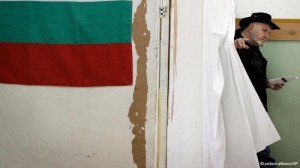 2005 Parliamentary Elections
2005 Parliamentary Elections
2006 Presidential Elections
2007 Municipal Elections
2009 Parliamentary Elections
2009 European Parliament elections
2011 Presidential Elections
2011 Local Elections
2013 Early parliamentary elections
2014 Early Parliamentary Elections
2015 Municipal Elections
Ministering at CitiPointe Church
Reformation Leadership Summit 2015
Water Baptism in the Thundja River
Presenting the Scrolls from the Second Varna Declaration
https://www.youtube.com/watch?v=-kHytj8yK8E
We,
The believers from different churches in Bulgaria
declare on this day of October 5th 2014 in the city of Varna,
- That we, according to The Holy Scriptures, will do our best to “fulfill the vows to the Lord” (Psalm 116:14), which were written and signed by 5,000 believers in the two scrolls produced on April 9th 1989 in the same city of Varna
- In which we presented our requests, prayers and intersession for those in authority, that we may live peaceful and quiet lives in all godliness and holiness (1 Timothy 2:2)
- Reminding now our authorities in these two second scrolls about the urgent New Testament warning, that “God did not spare angles, when they sinned and He did not spare the ancient world, when He brought the flood on its ungodly people, and that He did not spare Sodom and Gomorrah but burned them to ashes and made them an example of what is going to happen to the ungodly” (2 Peter 4-6).
These two second scrolls are again signed by Christians in Bulgaria both on October 5, 2014 and further on by Christians all over the country, to whom theses second scrolls are being brought and presented.
On behalf of the Bulgarian Christians
Read Also:


